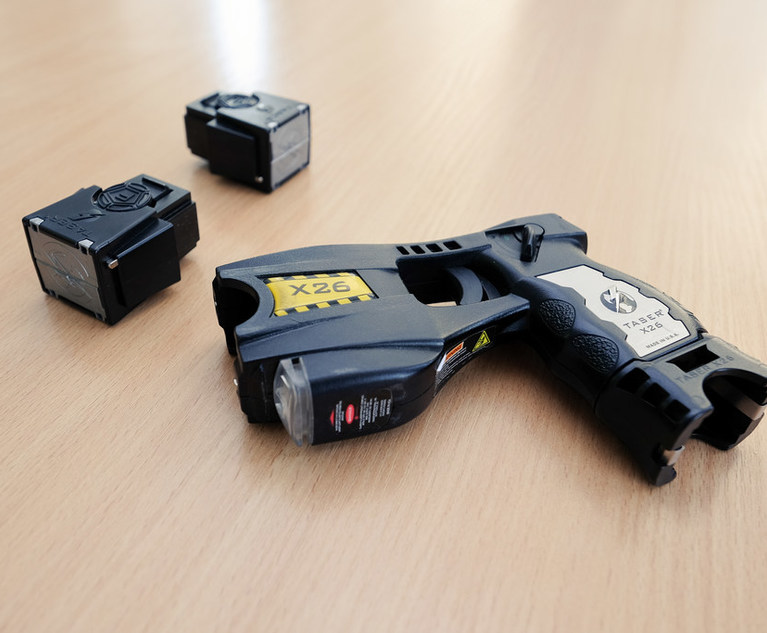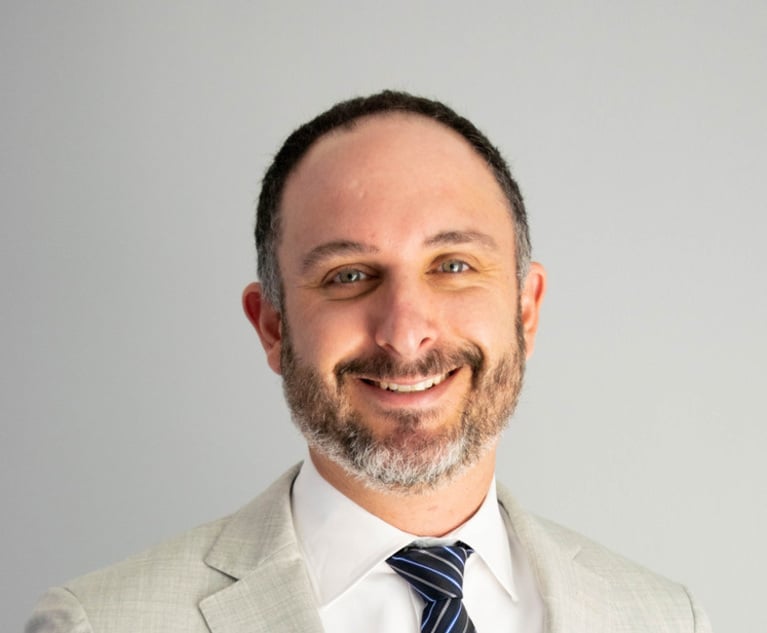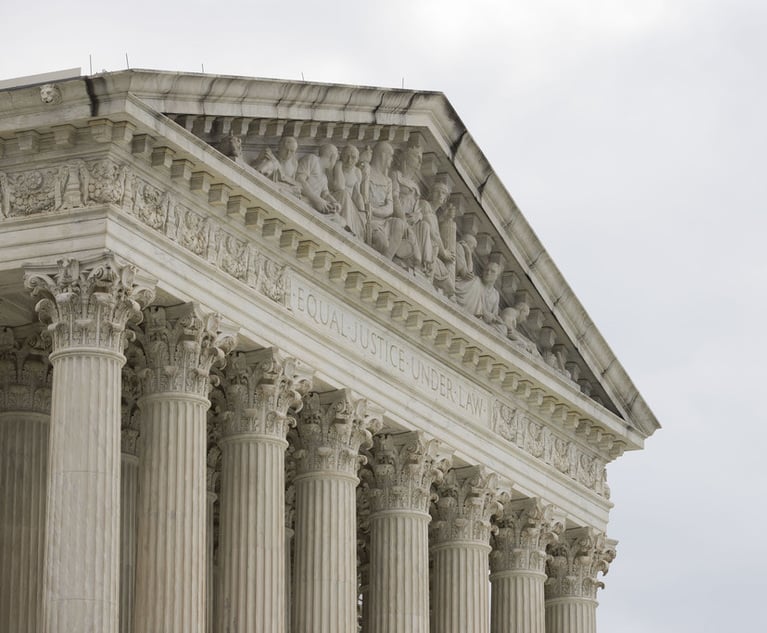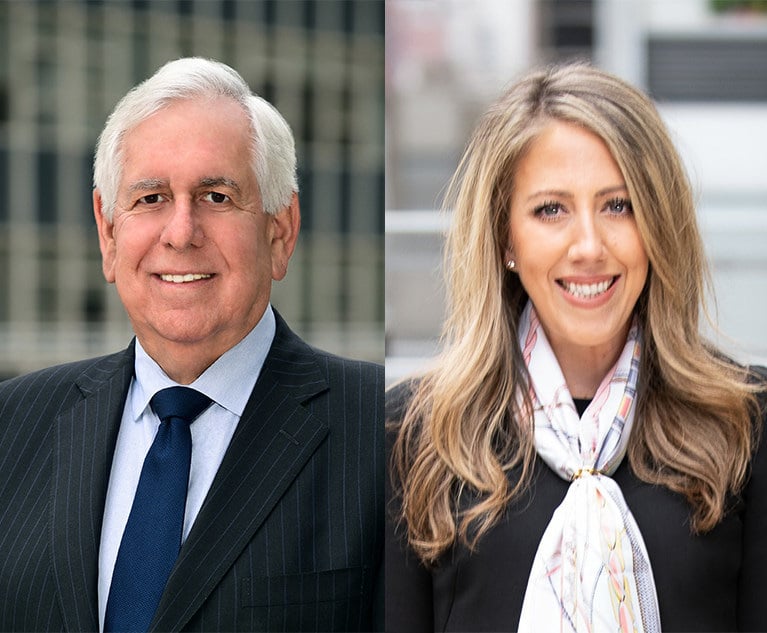 Taser X26 stun gun and two cartridges.
Taser X26 stun gun and two cartridges. Police Use of Force Against the Mentally Ill: Circuit Court Developments, Part I
In this edition of his Section 1983 Litigation column, Martin A. Schwartz begins his analysis of circuit decisions evaluating police use of force against persons suffering from mental illness, focusing here on decisions from the First, Fourth and Ninth circuits in which officers employed Taser force against an individual suffering from mental illness.
May 03, 2022 at 08:56 AM
11 minute read
It is an all too familiar factual pattern. It starts with a plea for help. A 911 call is placed to the police department seeking assistance for an individual suffering from mental illness. The caller is typically a relative or friend of the mentally ill individual who may be threatening to harm himself, or someone else, or is acting erratically. The caller feels helpless with no place else to turn, so she reaches out to the police. At least at the outset everyone seems to mean well, trying to help; the 911 caller, the police dispatcher, and the officers dispatched to the scene.
The officers may not have been trained in dealing with the mentally ill. "Armed police officers drilled in techniques to subdue violent suspects, often seem ill-equipped to deal with people who are mentally ill or in a drug induced delirium." Edgar Sandoval, Daniel Prude Was in Mental Distress, Police Treated Him Like a Suspect, N.Y. Times Oct. 9, 2020; see also Megan Pauly, How Police Officers Are (or Aren't) Trained in Mental Health, The Atlantic, Oct. 11, 2013 (observing that there are great disparities in Crisis Intervention Training programs in police departments nationwide). The common wisdom is that when dealing with the mentally ill, the police should attempt to deescalate the situation by, for example, backing off and calling for crisis intervention team backup, if available, or having the individual transported to a mental-health faculty, and not try to restrain the individual like a criminal suspect. But we know from reported decisions and media accounts that it doesn't always happen that way. The police at times further aggravate an already agitated individual, exacerbating an already tense situation.
This content has been archived. It is available through our partners, LexisNexis® and Bloomberg Law.
To view this content, please continue to their sites.
Not a Lexis Subscriber?
Subscribe Now
Not a Bloomberg Law Subscriber?
Subscribe Now
NOT FOR REPRINT
© 2025 ALM Global, LLC, All Rights Reserved. Request academic re-use from www.copyright.com. All other uses, submit a request to [email protected]. For more information visit Asset & Logo Licensing.
You Might Like
View All
For Safer Traffic Stops, Replace Paper Documents With ‘Contactless’ Tech
4 minute read
Impact of New NYS Workers’ Compensation Work-Related Stress Relief on Discrimination Claims

Justices Will Weigh Constitutionality of Law Allowing Terror Victims to Sue PLO

Are New York City Housing Providers Ready for the Fair Chance for Housing Act?
10 minute readTrending Stories
Who Got The Work
Michael G. Bongiorno, Andrew Scott Dulberg and Elizabeth E. Driscoll from Wilmer Cutler Pickering Hale and Dorr have stepped in to represent Symbotic Inc., an A.I.-enabled technology platform that focuses on increasing supply chain efficiency, and other defendants in a pending shareholder derivative lawsuit. The case, filed Oct. 2 in Massachusetts District Court by the Brown Law Firm on behalf of Stephen Austen, accuses certain officers and directors of misleading investors in regard to Symbotic's potential for margin growth by failing to disclose that the company was not equipped to timely deploy its systems or manage expenses through project delays. The case, assigned to U.S. District Judge Nathaniel M. Gorton, is 1:24-cv-12522, Austen v. Cohen et al.
Who Got The Work
Edmund Polubinski and Marie Killmond of Davis Polk & Wardwell have entered appearances for data platform software development company MongoDB and other defendants in a pending shareholder derivative lawsuit. The action, filed Oct. 7 in New York Southern District Court by the Brown Law Firm, accuses the company's directors and/or officers of falsely expressing confidence in the company’s restructuring of its sales incentive plan and downplaying the severity of decreases in its upfront commitments. The case is 1:24-cv-07594, Roy v. Ittycheria et al.
Who Got The Work
Amy O. Bruchs and Kurt F. Ellison of Michael Best & Friedrich have entered appearances for Epic Systems Corp. in a pending employment discrimination lawsuit. The suit was filed Sept. 7 in Wisconsin Western District Court by Levine Eisberner LLC and Siri & Glimstad on behalf of a project manager who claims that he was wrongfully terminated after applying for a religious exemption to the defendant's COVID-19 vaccine mandate. The case, assigned to U.S. Magistrate Judge Anita Marie Boor, is 3:24-cv-00630, Secker, Nathan v. Epic Systems Corporation.
Who Got The Work
David X. Sullivan, Thomas J. Finn and Gregory A. Hall from McCarter & English have entered appearances for Sunrun Installation Services in a pending civil rights lawsuit. The complaint was filed Sept. 4 in Connecticut District Court by attorney Robert M. Berke on behalf of former employee George Edward Steins, who was arrested and charged with employing an unregistered home improvement salesperson. The complaint alleges that had Sunrun informed the Connecticut Department of Consumer Protection that the plaintiff's employment had ended in 2017 and that he no longer held Sunrun's home improvement contractor license, he would not have been hit with charges, which were dismissed in May 2024. The case, assigned to U.S. District Judge Jeffrey A. Meyer, is 3:24-cv-01423, Steins v. Sunrun, Inc. et al.
Who Got The Work
Greenberg Traurig shareholder Joshua L. Raskin has entered an appearance for boohoo.com UK Ltd. in a pending patent infringement lawsuit. The suit, filed Sept. 3 in Texas Eastern District Court by Rozier Hardt McDonough on behalf of Alto Dynamics, asserts five patents related to an online shopping platform. The case, assigned to U.S. District Judge Rodney Gilstrap, is 2:24-cv-00719, Alto Dynamics, LLC v. boohoo.com UK Limited.
Featured Firms
Law Offices of Gary Martin Hays & Associates, P.C.
(470) 294-1674
Law Offices of Mark E. Salomone
(857) 444-6468
Smith & Hassler
(713) 739-1250






